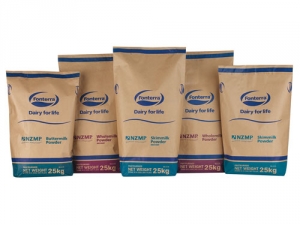A recovery in global dairy prices is on the horizon but farmers may not benefit until next season, says Rabobank.
In its latest rural confidence survey, the bank says confidence among dairy has taken a hit from the slumping dairy prices.
The last seven GDT events have recorded a drop in the price index covering all products; the next auction will be on Thursday.
The Rabobank survey earlier this month found confidence in the agricultural economy had fallen significantly this quarter to a negative net reading of -45%, down from 13% in the March quarter.
However, sheep and beef farmers’ confidence remains the same as last year.
The hangover from a dry summer, coupled with disappointing farmgate returns, flowed into the neutral outlook held by sheep and beef producers. Similar to last quarter, half of drystock farmers (52%) expect a similar farm business performance to last year, and they were almost equally spilt as to whether conditions would improve or deteriorate – at 22% and 25%, respectively.
Rabobank New Zealand chief executive Ben Russell says that while dairy farmers are likely to get a better farmgate milk price than last season, it was still likely to be below the full production cost for many farmers.
Russell says dairy farmers were taking steps to reduce their costs. “In response to current pricing signals, we are seeing dairy farmers cut back their rates of supplementary feed and some lower their stocking rates by culling lower performing cows, and maximising feed available to a higher quality, but smaller, herd.”
Russell says subdued sentiment in the dairy sector not only had significant flow-on effects to other agricultural sectors and service providers – highlighting the impact of reduced expenditure on grazing and feed inputs by dairy farmers – but also to the wider NZ economy.
In aggregate, NZ farmers revised down their expectations for their own farm business performance to a net negative reading of -17%, from 14% last quarter.
This flowed into investment intentions, with 60% of respondents expecting to maintain their investment, but a smaller proportion expecting to increase it.
Russell says the investment appetite amongst dairy farmers had waned, with only 8% holding expansionary intentions during the year.
“This is reflective of the market that dairy farmers are operating in despite the longer-term fundamentals remaining positive,” he says.
The Rabobank Rural Confidence Survey is run by research firm TNS, interviewing about 450 farmers each quarter.



















